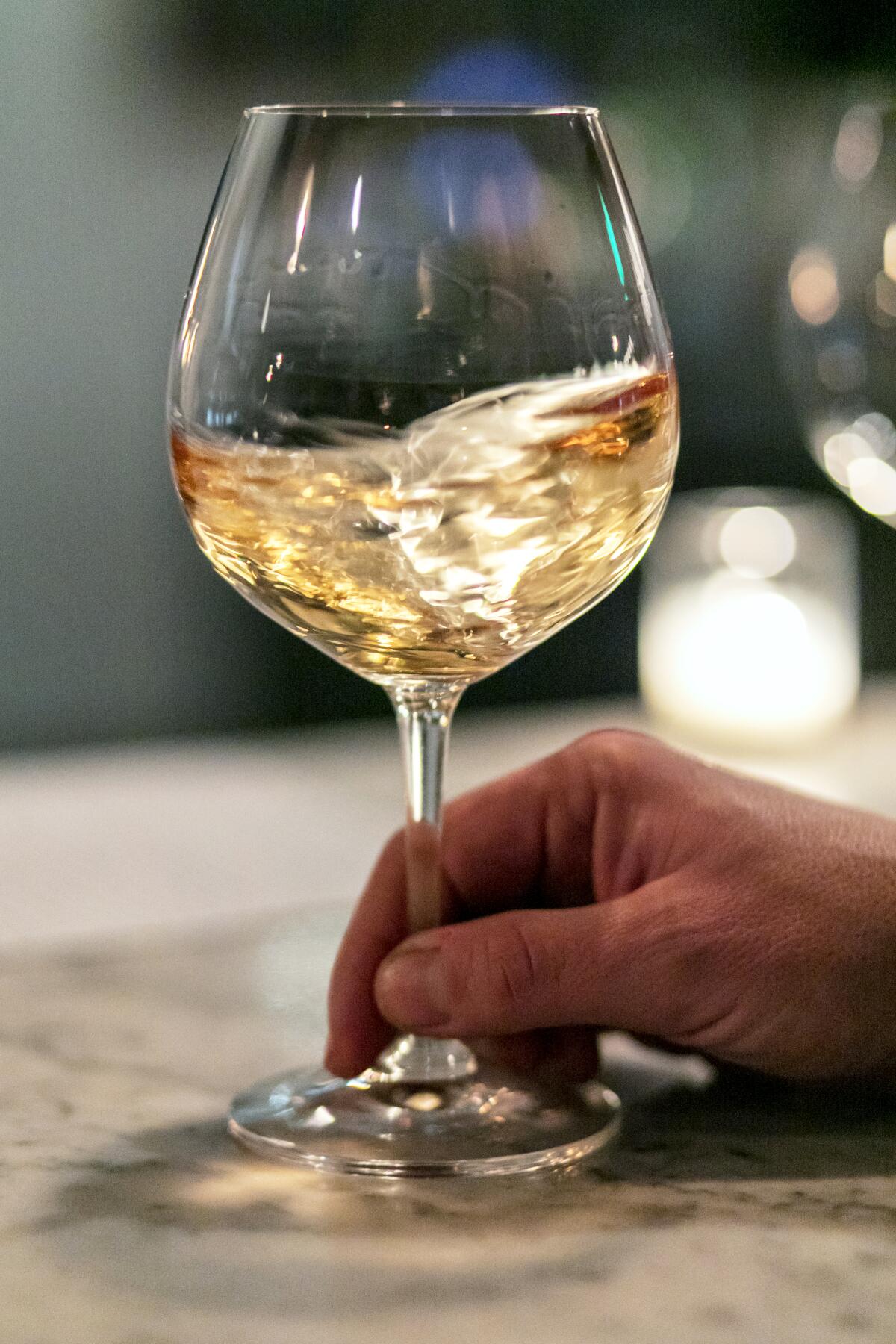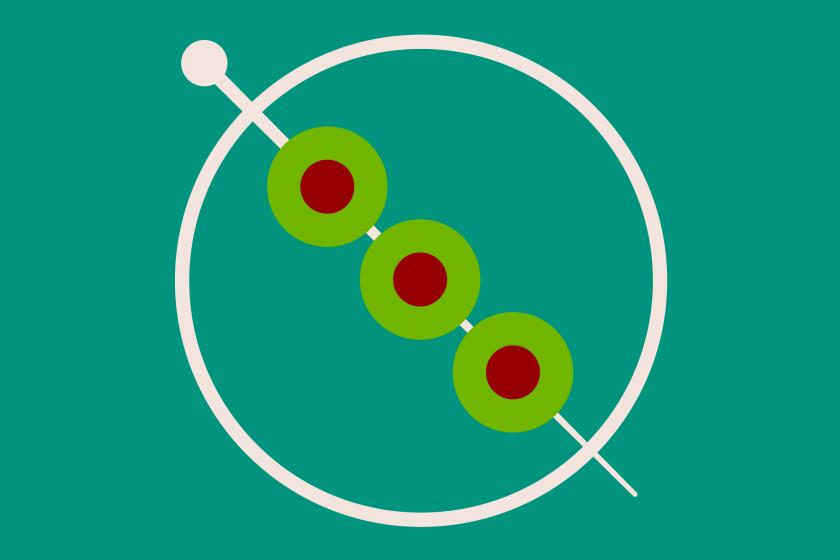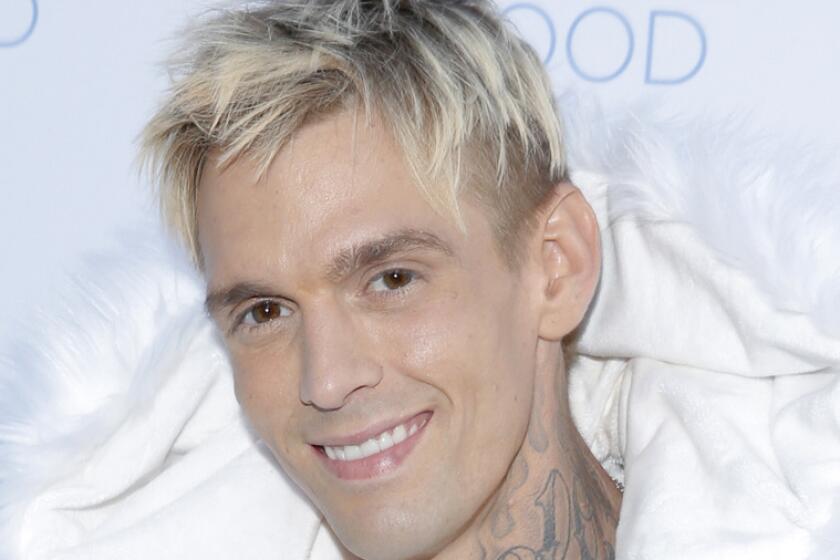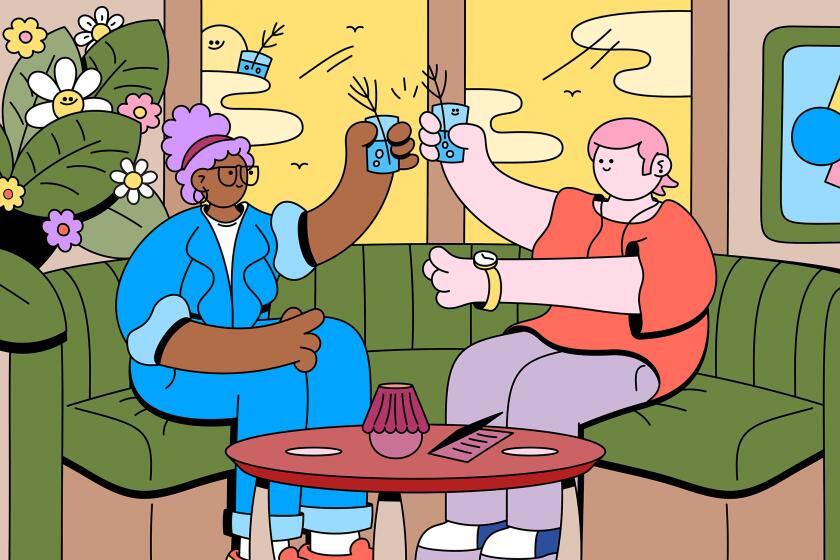Column: Dry January hasn’t been so bad after all

- Share via
It’s almost the end of my first Dry January, and I am happy to report — as if you didn’t already know — that it’s possible to stop drinking even when you think you can’t.
Over the years, for fairly mundane reasons, I have become uneasy about my relationship with alcohol. Drinking feels too much like a mindless habit. It makes me fat. It interferes with a good night’s sleep. It’s embarrassing to admit to having a hangover at my age.
I’ve never been arrested for drunk driving, never blacked out and gone home with a stranger, never been told by a doctor that I’m endangering my health. (Although I did once instruct my doctor to write “Stop drinking!” on her after-visit notes for me, thinking that would give me an official nudge to lose weight. It did not.)
I usually imbibe at home, which I know people say is a warning sign for problem drinking, but when you work full time and are single-handedly raising an adolescent who is in bed by 9 p.m., where else are you supposed to drink?
But that’s the thing, isn’t it? You aren’t supposed to drink. You choose to. And so, for this month, I chose to stop, although here I will make a confession: I did not have an absolutely, 100% dry January. I had a semiarid January.
In the middle of the month, I drank some wine in San Francisco with my niece. I was only mildly annoyed with myself. But about a week after that, I drank a couple of vodkas one evening at home after my niece went to bed. I woke up in the wee hours with my heart pounding and felt so lousy the next morning that it was clear why I stopped in the first place. That’s right, the universe was telling me, vodka is not good for you! I resumed my sober experiment.
And, for reinforcement, I picked up Sarah Levy’s “Drinking Games,” a new memoir about a young New Yorker who realizes after too many blackouts, emergency room visits and mornings with strangers in her bed that drinking is destroying her life.
Many folks ring in the New Year with a Dry January. We asked experts about the practice of shunning alcohol for a month.
It’s a fresh iteration of a familiar theme: A high-achieving, upper-middle-class white girl with an uncontrollable drinking problem who’s constantly falling down and puking in public trash cans finally admits that alcohol is killing her. All the wellness culture in the world — the SoulCycle rides, the hip-hop yoga classes — could not make her healthy. Only sobriety could do that.
I couldn’t really say that Levy’s experience mirrored my life — after all, we are a generation apart — but I’ve written enough about how alcohol puts young women in dangerous or ambiguous situations and, as the mom of a young woman and guardian of another, I wanted to know how she saved herself and how she managed to survive all those years when practically every time she drank, she blacked out. In some ways, I guess, she was just lucky.
“Somebody said that when men get drunk they go out into the world and do things,” Levy told me by phone this week from West Hollywood, where she lives with her husband, “and when women get drunk, the world does things to them.”
It’s a chilling thought. We were at that moment discussing the role that alcohol plays in sexual assault and consent. While it’s clear that Levy had a number of experiences that might, in some courtrooms, constitute assault, she takes responsibility for putting herself in bad spots.
“I told myself that this is empowered of me,” she told me. “I’m having one-night stands the way men are.” But owning your sexuality is hardly the same as unconsciously falling into bed with a stranger.
People with substance use disorders, such as Aaron Carter, who died last week, have embraced the idea that they can get high and be sober
“I experienced a lot of shame around my blackouts, which stopped me from speaking candidly about them,” she said. “A lot of my friends feel bad because they didn’t know what was going on with me. They didn’t realize how much I was struggling. I was so preoccupied with making sure that things looked normal on the outside.”
When Levy stopped drinking five years ago at 28, the concept of “sober curious” was just capturing imaginations, as was the idea of Dry January, which has now reached the point of cultural — forgive me — saturation.
Bookshelves were starting to groan with the popular subgenre of memoir called “quit lit,” about women and addiction to all sorts of things (drugs, drink, porn, dieting).
Social media sites aimed at helping people stop drinking have proliferated, as have chat groups on websites such as Reddit, where lately I’ve been dipping into a conversation called Stop Drinking that is by turns inspiring and devastating.
Looking for mocktail options for the new year? Check out these Los Angeles spots that focus on nonalcoholic cocktails or the ingredients for at-home pours.
People who are struggling want to hear from others who are in the same fight or who have crushed it.
There was a time when it was far less fashionable for women to admit being drunks. And this, I think, is why so many women my age were bowled over by the late Caroline Knapp’s stunning 1996 confessional memoir, “Drinking: A Love Story.” (Will there ever be a more perfect title for such books?)
“I loved the way drink made me feel,” wrote Knapp, “and I loved its special power of deflection, its ability to shift my focus away from my own awareness of self and onto something else, something less painful than my own feelings.”
Those of us who drink can surely relate to that. I can’t say I’ve had any major revelations about myself in the past month, except that I sleep so much better without alcohol. Oh, and that it’s entirely possible to do things you never thought you could. Which, come to think of it, is pretty huge.
More to Read
A cure for the common opinion
Get thought-provoking perspectives with our weekly newsletter.
You may occasionally receive promotional content from the Los Angeles Times.















